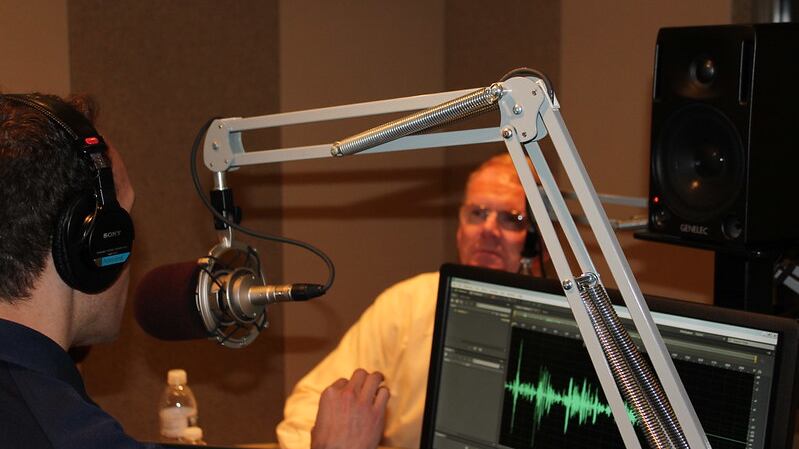Since entering the political scene President Donald Trump has had an antagonistic relationship with the press. Now in his second term, Trump has taken the first step to cut funding from public media.
The Trump administration is preparing to ask Congress to rescind federal funding for the Corporation for Public Broadcasting: $1.1 billion dollars over the next two years.
Once it presents that ask, called a recision, on April 28, Congress will have a 45-day countdown to decide whether or not to allow the recision.
Funding from the CPB goes to broadcasters like NPR and PBS to produce programming, but a larger share goes to local stations. Some of that funding does then make its way back to the broadcasters when those local stations pay them for programming rights.
PBS SoCal wrote that the proposed cuts would reduce its budget by 8 million dollars, 20% of its budget.
It wrote that it “would not be able to effectively serve families, especially those from low-income households. We would also lose vital shared services such as interconnection and digital infrastructure.”
Gordon Stables, the head of the School of Journalism at the University of Southern California said pubic media has an outsize impact for its budget.
“They’re really actually relatively small in terms of economic totals in the media landscape, but they’re big from a cultural impact standpoint,” Stables said. “The challenge is going to be without federal funding. They’ll have to reinvent themselves in ways that are much more closer to commercial media.”
Nick Roman, who worked in public media in Southern California for 40 years, said the cuts will fall more heavily on stations outside metropolitan areas.
“A friend of mine runs the station out of Lafayette, Louisiana, these are the stations that are preserving the music and the culture of those regions, and they depend heavily on federal funding,” Roman said. “In Los Angeles, KCIW, KPCC, KUSC, will get stung by losing federal money. For those smaller stations elsewhere in the country, they could be crushed.”
As stations may potentially get stung or crushed by this loss, the truth behind the Trump administration’s reasoning is still being vetted. Conservatives such as Marjorie Taylor Greene have targeted public media for what they have alleged is a liberal bias by the broadcasters. In March, the House DOGE subcommittee called leaders of both NPR and PBS to testify.
Roman said that in looking at national stories, critics miss the local, nonpartisan coverage of public media.
“It’s a label that gets placed on it because of the kind of national coverage that tends to happen. And people look at those stories through a liberal or conservative lens,” Roman said. “You have an oil spill off the coast of Huntington Beach. There’s no liberal or conservative on that. That’s an ecological issue and it’s something that you have to cover.”
Under Trump, the FCC also opened an investigation into the sponsorship practices of PBS and NPR. The broadcasters are barred from airing commercials but have long thanked donors, including corporate ones, on air. FCC chair Brendan Carr has said he thinks the organizations are running afoul of the law.
Stables said the noncommercial element of public media has distinguished it from others.
“The biggest thing about public media is that it’s not worried about audience share. It’s not worried about advertising rates. It’s not worried about trying to convince an audience that you have to agree with us. It starts with ‘Do we understand the information needs of our community?’” Stables said
Looking forward, Roman said not to expect the debate to fall along clean partisan lines.
“You might be surprised by the kind of support that public media gets from more conservative, basically, Republican senators and members of the House,” Roman said. “They know what’s going on in their states, and I would expect that they would work to protect that. It’s a it’s a teeny, tiny amount of money, anyway, compared to the rest of the federal budget.”
